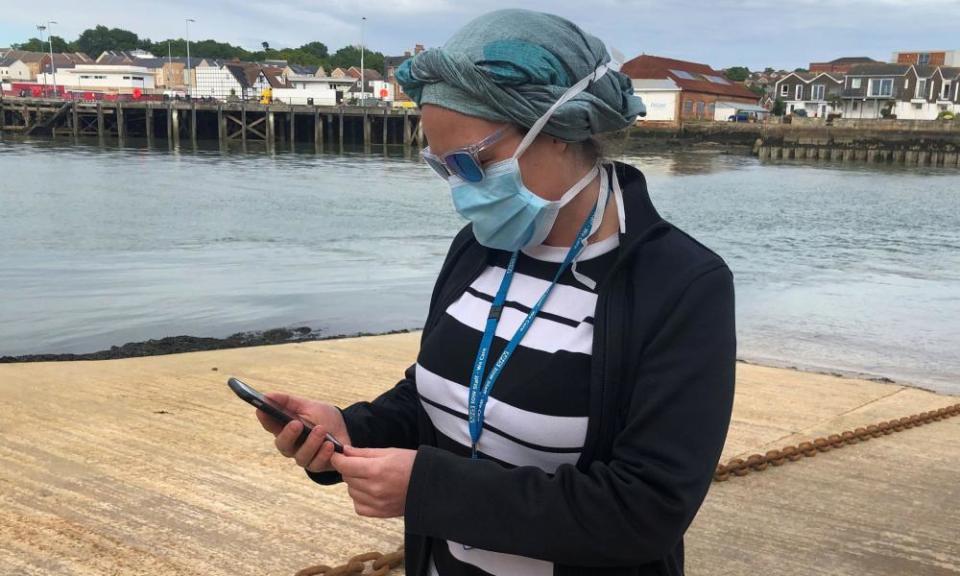What is the test, track and trace system in England?

The government’s test, track and trace system to help curb the spread of coronavirus is supposed to be up and running by Monday 1 June. But what do we know about how the system works and if it will be ready by next week?
What is contact tracing – is is just about a new phone app?
No. The NHS app being trialled on the Isle of Wight is a very useful addition to contact tracing, but no replacement for human beings who will get in touch with people who may have been in contact with those who have coronavirus symptoms.
Is the contact tracing system ready to go?
Not yet. The health and social care secretary, Matt Hancock, said 25,000 telephone contact tracers had been recruited – more than the 18,000 he set as a target – although we do not know whether they have all been trained and are ready to start work. However, the much-discussed NHS app that is supposed to alert people who have been close to somebody who has Covid-19, has been delayed and will not be ready until 1 June. Last Thursday, Prof John Newton, of Public Health England, told the Downing Street briefing there were advantages to starting one part of the operation ahead of the other.
How important is the app?
The government initially set great store by it. Hancock is known to be a great fan of technology. It was hoped it would make the work of contact tracing much easier, but the trial on the Isle of Wight has thrown up problems. For one thing, it appears the app does not work so well with Google- and Apple-operated phones.
What will the call handlers do?
They will work from home initially, and possibly in call centres later. They will be given the details of somebody who has tested positive for Covid-19 and call them to find out whom they have met in the previous two days. The call handlers will phone those people and advise them and their family to self-isolate for 14 days. They should then check on them regularly to ask how they are and whether they are coping. If any of those contacts becomes ill, the call handlers will ask them in turn for the names and numbers of people they have been with.
Will people who get a call and are told to self-isolate cooperate?
Some will and some may not. A pilot project run by a group of doctors in Sheffield found a number of problems, including a reluctance by some people to self-isolate when it meant being unable to earn money. Several of those people were working in care homes.
Many public health doctors think the tracing schemes should be run at local authority level, by people who are part of the community and will be better able to find and support people, rather than call handlers who may be located in a different part of the country. Contact tracing in the past has been done by local environmental and public health officers.
Will Dominic Cummings’ decision to travel 264 miles to Durham to self-isolate make it more difficult for call handlers to persuade people to stay at home?
That is the fear of some behavioural scientists. Some families may think if he can interpret the rules how he likes, then so can they.

 Yahoo News
Yahoo News 